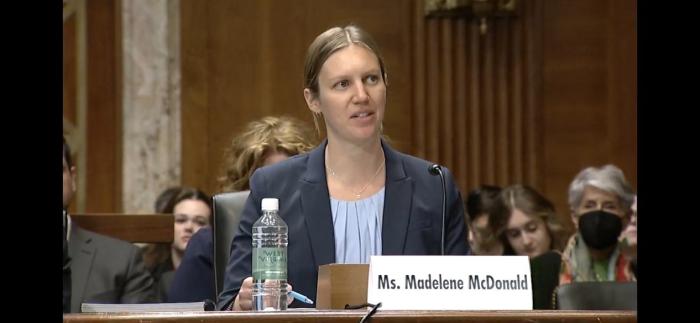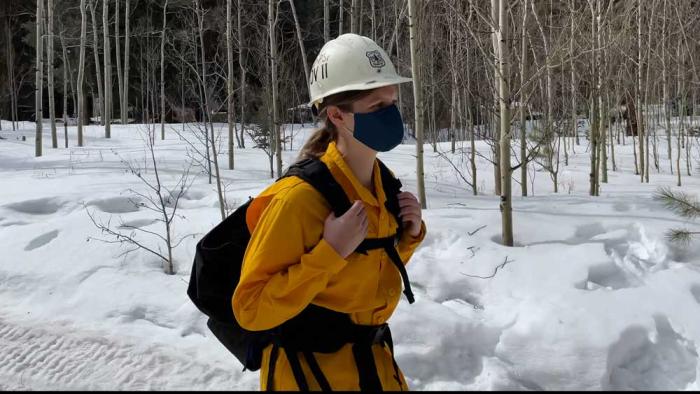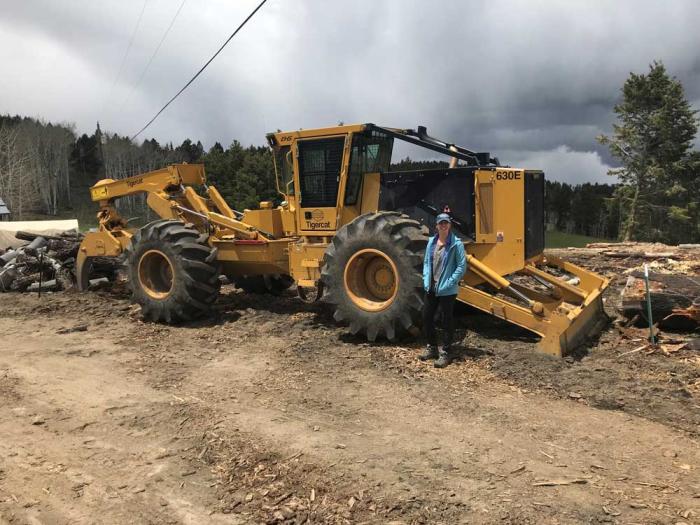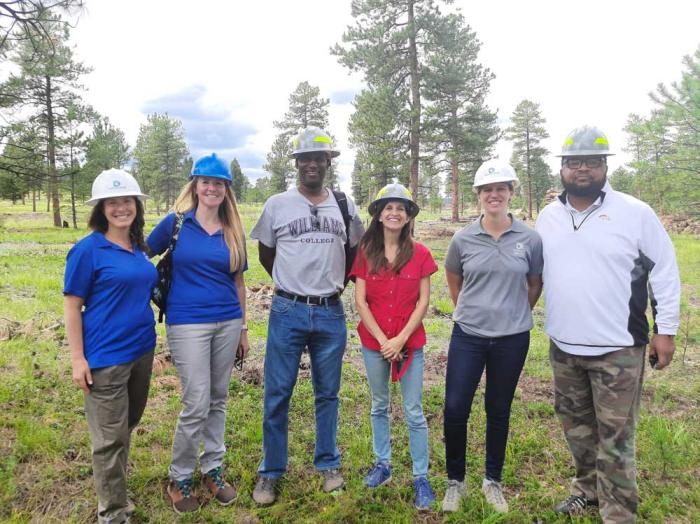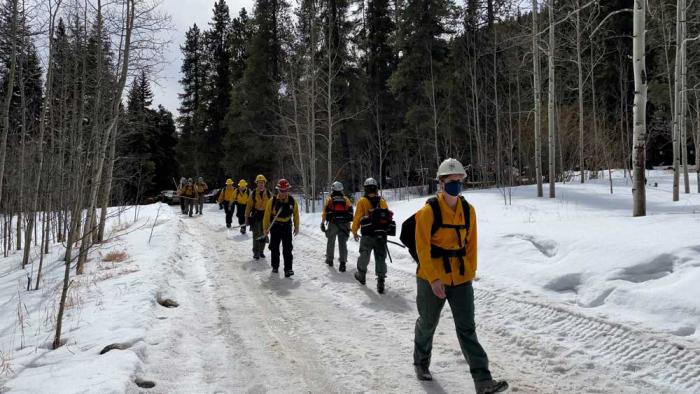Denver Water scientist earns a rare slot on Congressional commission
Editor’s note: On March 12, 2024, Madelene McDonald was one of five witnesses to testify about the federal Wildland Fire Mitigation and Management Commission’s work and findings before the Senate Energy and Natural Resources Committee. McDonald testified about Denver Water’s extensive experience with the impacts of wildfire as well as the commission’s recommendations on where to focus resources to reduce the damage to landscapes and water supply created by large wildfires.
Watershed scientist Madelene McDonald started at Denver Water as an intern while wrapping up graduate school in 2019.
Just four years later, she’s representing the agency — and utilities across the West — as one of just 18 primary nonfederal members appointed to a nationwide commission advising Congress on reducing the threat of wildfire to land, water and communities.
It’s a big role.
More than 500 people applied for the federal Wildland Fire Mitigation and Management Commission. Of those, 18, including McDonald, were chosen to team with 11 federal representatives on the commission, a product of the bipartisan Infrastructure Investment and Jobs Act passed by Congress in 2021.
McDonald is one of the 18 primary, nonfederal members. There also are an additional 18 members assigned as alternates should primary members be unavailable for a commission vote.
Their task: To spend a single year developing a list of recommendations for Congress to implement as it grapples with the increasing risk of wildfires amid rising temperatures and drought triggered by climate change.
Join people who are passionate about all things water, at denverwater.org/Careers.
The commission has been meeting virtually since late summer. This week, (Wednesday and Thursday) one of the commission’s three in-person meetings will be held at Denver Water’s Operations Complex.
The first in-person gathering was in Salt Lake City in September. McDonald has been leading organizational efforts for the gathering at Denver Water’s Three Stones building this week.
One big thing going for McDonald during the commission’s competitive application process: Denver Water has carved out a national reputation for its work protecting water resources from the impacts of wildfire via its From Forests to Faucets partnership. And McDonald also was one of very few utility specialists focused almost solely on addressing wildfire risks to water supplies.
Listen to Denver Water’s watershed scientist Christina Burri talk about why protecting forests protects our water supplies:
Asked her reaction when she learned she had been appointed to the commission, McDonald admitted: “I saved that voicemail for sure,” when she was phoned by federal officials last summer with the news.
She’s modest about the achievement, citing Denver Water’s long and high-profile experience with wildfire impacts as a key factor. She also credits her supervisor Christina Burri, who oversees Denver Water’s From Forests to Faucets partnership, with pushing her to apply for the commission and for Burri’s efforts to work across agencies to promote the importance of watershed protection.
McDonald said her appointment also suggests there’s a new, wider recognition of the threat wildfire poses to water supplies.
Protecting communities, property and people have long been at the forefront of wildfire risk planning. But Denver Water’s own experiences with fires that threatened water supplies on the South Platte River in the late 1990s and early 2000s, along with threats to water in New Mexico and Arizona, have expanded the thinking on reducing wildfire risk.
“The wildfire community does understand now that water needs to be at the table,” she said.
The commission faces a tall order in developing wide-ranging recommendations in just a year’s time.
But McDonald, who calls the commission’s work “a once-in-a-generation opportunity to reshape federal wildfire management policy,” is impressed with the resolve and work ethic of her colleagues.
“Starting with that first gathering in Salt Lake City, I don’t think I’ve ever walked out of a meeting more encouraged that a group of people could tackle such big challenges,” she said. “The collective expertise that’s been assembled is outstanding. I do think this group is probably our best shot at solving some of these systemic barriers to more efficient wildfire policies.”
McDonald serves on three of the 10 work groups that the commission formed to divide up the workload and said those work groups are moving at a “breakneck pace.”
The commission’s focus, she said, is on “sweeping, impactful actions,” that would provide direction for future legislation out of Congress. The commission will issue its first report on its efforts Jan. 31, when it provides recommendations for improvements to aerial firefighting.
Did a friend forward this to you? Sign up for the free, weekly TAP email. (Scroll down to the light blue bar to add your email.)
McDonald, herself, is largely focused on recommendations that will take water supplies into greater account when considering federal approaches to fire prevention and post-fire rehabilitation work. She said even today, some federal policies focus solely on communities and property, without sufficient consideration to wildlife habitat, recreation, and reservoirs and the landscapes that impact them.
“Ensuring these recommendations take water supplies into greater account is one of my top priorities,” McDonald said.
With the commission nearing its halfway point, “I’ve got an Excel spreadsheet full of water-specific recommendations.”
Denver Water’s Three Stones building will host two major federal wildfire discussions the week of Jan. 23.
On Jan. 23-24, the Wildfire Resilience Interagency Working Group, a federal entity established by President Joe Biden in 2021, will meet for a workshop, along with federal, state and local partners from Colorado and New Mexico. The focus will be on learning from post-fire recovery work in Colorado and New Mexico
On Jan. 25-26, the federal Wildland Fire Mitigation and Management Commission, the group described in this TAP story, will hold one of its three in-person meetings slated for the commission’s 12-month project. The commission and its sub-groups meet virtually for most of its work but gather in person to take votes and have broader discussion.


